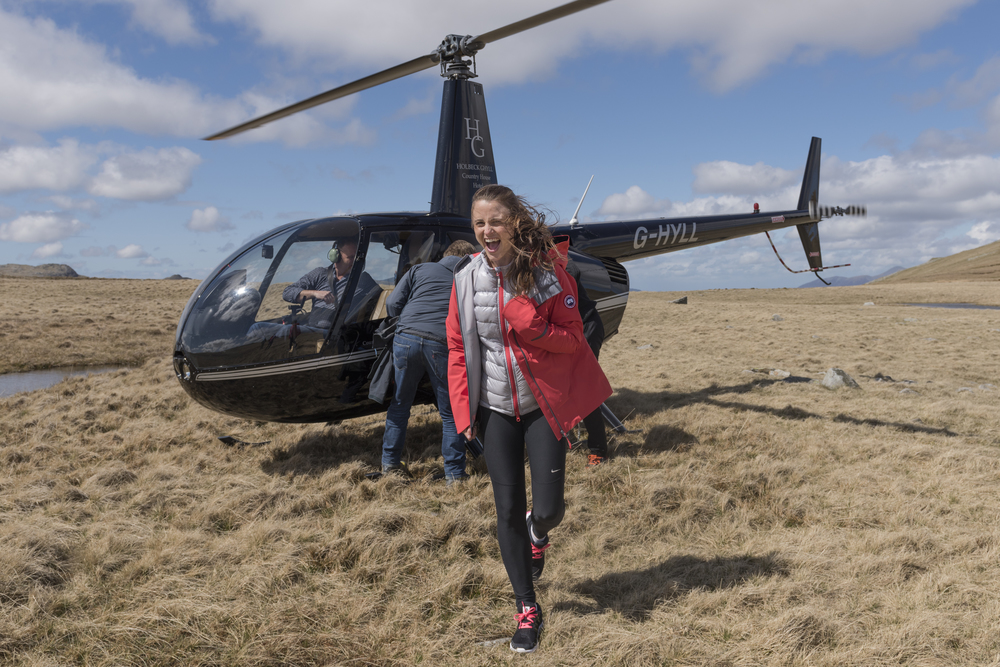
Written from my medical deployment with Team Rubicon to a Syrian refugee camp in Greece.
We heard over the radio that the new family of 9, three adults with six children, had arrived. They exited the Greek bus and their bags were unloaded, 12 bin bags taped together for the nine of them. This was just their clothes and bedding, everything they now owned and that had been donated to them.
They were clearly distressed and didn't want to enter the camp, but they couldn't go back now. They had no where else to go and had been travelling all day with small children. They had been told that they were being moved to live in a nice hotel just to get them on the bus, and were very disappointed to be taken to yet another large camp, their sixth camp in Greece alone. They had fled the war in Syria 10 months ago after they survived a bombing which killed family members and their home was destroyed.

Before they were allowed to move into their single room in the converted textile factory that they would now call home, they had to pass a medical assessment by us. The children ran up the stairs, excited about a new place to explore, the tired, emotional adults slowly followed. Before we had even begun, every member of the family all needed the toilet after their long journey, but had to be escorted as they weren't officially allowed the enter the camp yet until they had passed the medical screening.
We turned on two portable heaters in the small medical assessment room and brought out colouring books and crayons to entertain the children as it would take considerable time to assess every member of the family. The only adult male of the family, a former engineer, sat with his head in his hands whilst one of the women wept as her little boy aged six tried to comfort her.

Team Rubicon working together with our Syrian and Greek resident interpreters as one team
We apologised for the invasive and personal questions we had to ask, and reassured them that their children looked very happy and well looked after as they settled on the floor with the colouring books. I tried to conceal the fact that I applied alcohol gel to my hands before I touched any of the family. This is standard practice in the UK to prevent the spread of germs between seeing each patient, but I didn't want them to see and be offended. Syrians pride themselves on their cleanliness and presentation.
Are the children continent? Had there been an out break of lice or scabies at the other camp? What vaccinations have the children had? Have any of the children complained of itchy hair? We tried to make it a game of Doctors and nurses as we listened to the lungs and hearts of each child, and then checked their hair for the notorious white eggs. Each one stood up, smiled, laughed and did everything we asked of them during the examination, playing along with the game.

We taught some of the residents CPR and first aid so they run their own training
To the women, could either of you be pregnant? Do any of you have any health conditions? Were there any complications during delivery of the children? Is anybody in regular medications? They were helpful and answered every question, saying as little as they needed to, exhausted and humiliated. Would you like any contraception? The questions went on. We established that the children were all from one mother, the other woman was their aunty. They simply told us that she had lost her family and said nothing more. I gulped a few times and tired to widen my eyes and concentrate on note writing.
The three hours of questions and examination, although absolutely necessary to ensure their health care needs are met, was tiresome and degrading. We tried our best to smile, to reassure them, be sensitive and to give them the best possible care we could, from one human being to a suffering another. They were lucky to be here really, we are the only camp in the area with 24 hour access to medical care, medicine and a daily drop in clinic, and ours was in indoors and not in a tent.

We treated all kinds of common medical conditions and disabilities
The three young girls all wet the bed every night, their mother said, they never did this until recently. The aunt has nightmares and is with drawn after seeing her sister killed in a bomb. The father feels helpless that he cannot look after his own family and is dependent on handouts. The baby is so small and still being breast fed, but looks as cute and chubby as a baby should be.
After the assessment is compete, we help the family carry their bags to their new home. The team walk them across the corridor and I open the door to the large, single, white room and hurry in to turn on the only electric heater. It's 2 degrees outside and snowing. I'm wearing 3 layers of clothes it's so cold even inside.
The children pile in from the main corridor that is filled with boisterous young children trying to entertain themselves. The adults stand in silence, stunned by their predicament. The room is bare except for 6 metal beds with thin mattresses and the one inadequate heater. There are no washing facilities, the family will have to hand wash nine people's clothes. I hand them the keys and close the door behind me. I can hear the sobs through the door. This could be their home for years. At least they are safe here.
